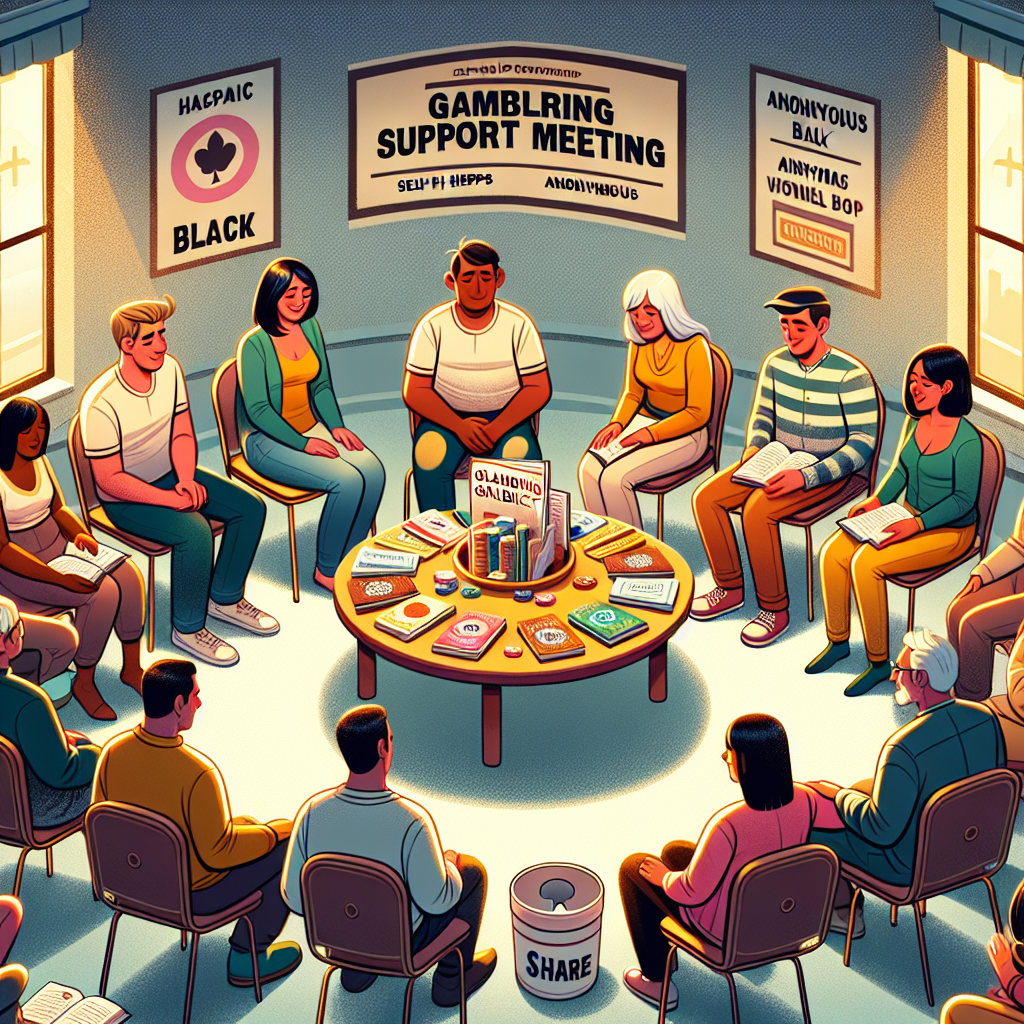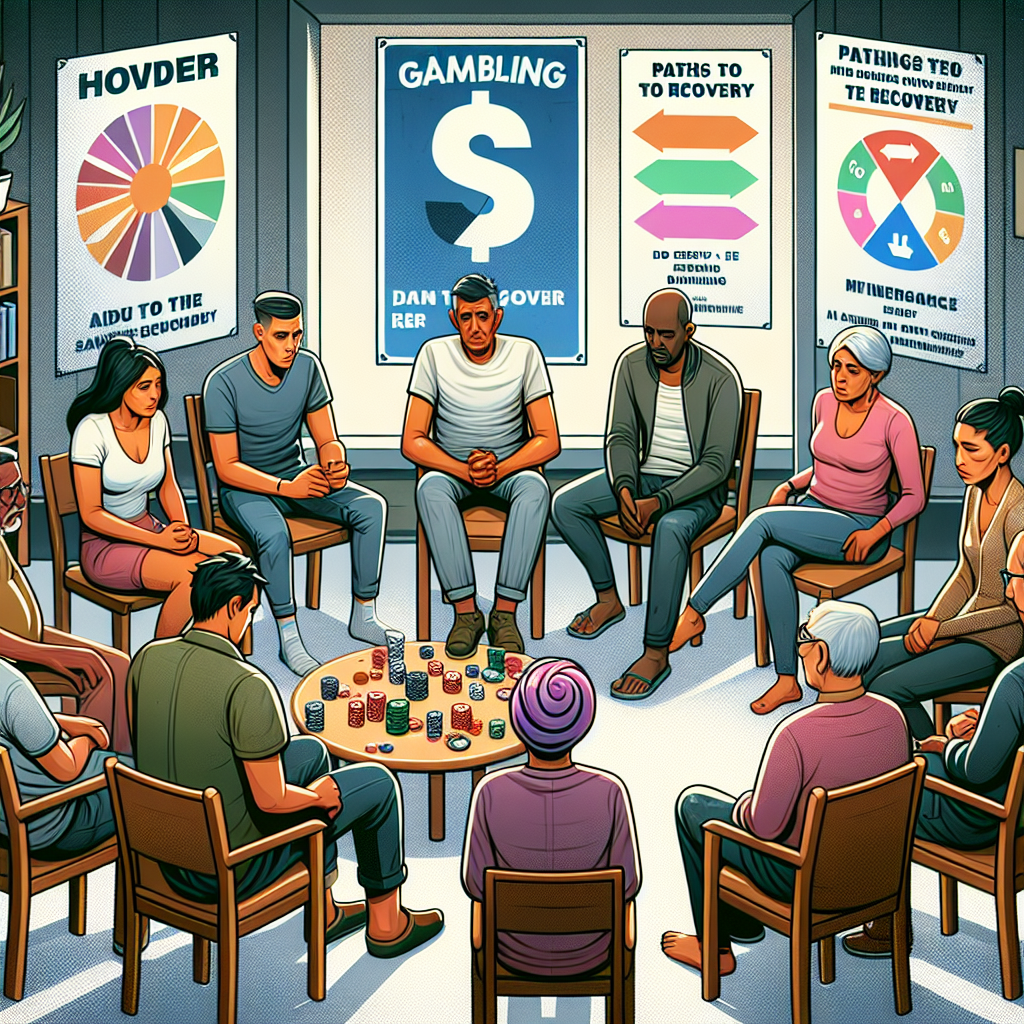-
Table of Contents

“Support groups: Empowering recovery, one shared story at a time.”
Introduction
Support groups play a crucial role in gambling addiction recovery by providing a structured environment where individuals can share their experiences, challenges, and successes with others who understand their struggles. These groups offer emotional support, reduce feelings of isolation, and foster a sense of community, which can be vital for maintaining motivation and accountability. Through regular meetings, participants can gain insights into coping strategies, receive encouragement, and develop healthier behaviors. Additionally, support groups often provide access to resources and professional guidance, further aiding in the recovery process.
The Role Of Peer Support In Gambling Addiction Recovery
Support groups play a crucial role in the recovery process for individuals struggling with gambling addiction. These groups provide a safe and understanding environment where individuals can share their experiences, challenges, and triumphs with others who are facing similar struggles. The power of peer support in these settings cannot be overstated, as it fosters a sense of community and belonging that is often missing in the lives of those battling addiction.
One of the primary benefits of support groups is the opportunity for individuals to connect with others who truly understand their situation. This shared understanding creates a foundation of trust and empathy, which is essential for effective recovery. When individuals feel understood and accepted, they are more likely to open up about their struggles and seek the help they need. This openness is a critical step in the recovery process, as it allows individuals to confront their addiction head-on and begin to work through the underlying issues that contribute to their gambling behavior.
In addition to providing emotional support, support groups also offer practical advice and strategies for managing gambling urges. Members of these groups often share their own coping mechanisms and techniques for avoiding triggers, which can be incredibly valuable for those who are new to the recovery process. By learning from the experiences of others, individuals can develop their own personalized strategies for maintaining sobriety and preventing relapse.
Moreover, support groups often incorporate structured programs and activities that are designed to promote personal growth and self-awareness. These programs may include educational sessions on the nature of addiction, workshops on stress management and healthy coping skills, and group discussions on topics related to recovery. By participating in these activities, individuals can gain a deeper understanding of their addiction and develop the skills they need to build a healthier, more fulfilling life.
Another significant advantage of support groups is the sense of accountability they provide. Regular attendance at group meetings helps individuals stay committed to their recovery goals and provides a consistent source of motivation and encouragement. Knowing that they have a group of peers who are invested in their success can be a powerful incentive for individuals to stay on track and continue working towards their recovery.
Furthermore, support groups can help individuals build a strong support network outside of the group setting. Many individuals who struggle with gambling addiction feel isolated and disconnected from their friends and family. By participating in a support group, they can begin to rebuild their social connections and develop new, healthy relationships with others who are also committed to recovery. These relationships can provide ongoing support and encouragement, which is essential for long-term success.
In conclusion, support groups play an invaluable role in the recovery process for individuals struggling with gambling addiction. By providing a safe and understanding environment, offering practical advice and strategies, promoting personal growth and self-awareness, fostering accountability, and helping individuals build a strong support network, these groups empower individuals to take control of their addiction and work towards a healthier, more fulfilling life. The power of peer support in these settings is truly inspirational, as it demonstrates the incredible impact that a compassionate and supportive community can have on an individual’s journey to recovery.
How Support Groups Provide Emotional And Practical Help For Gambling Addiction
Support groups play a crucial role in the recovery process for individuals struggling with gambling addiction, offering both emotional and practical support that can significantly enhance the journey towards a healthier life. These groups create a safe and understanding environment where individuals can share their experiences, challenges, and successes without fear of judgment. This sense of community is vital, as it helps to alleviate the isolation and shame often associated with gambling addiction.
One of the primary ways support groups provide emotional help is through the power of shared experiences. When individuals hear others recount their struggles and triumphs, it fosters a sense of camaraderie and mutual understanding. This shared experience can be incredibly validating, helping members realize they are not alone in their battle. The emotional support derived from knowing others have faced similar challenges can be a powerful motivator, encouraging individuals to stay committed to their recovery journey.
Moreover, support groups often employ structured programs that guide members through the recovery process. These programs typically include steps or principles designed to help individuals understand the root causes of their addiction, develop coping strategies, and rebuild their lives. The structured nature of these programs provides a clear path forward, which can be particularly beneficial for those who feel overwhelmed by the prospect of recovery. Additionally, the regular meetings and check-ins create a sense of accountability, helping members stay focused and committed to their goals.
In addition to emotional support, support groups offer practical help that can be instrumental in the recovery process. For instance, members often share resources and strategies that have been effective in managing their addiction. This exchange of practical advice can include tips on avoiding triggers, managing finances, and finding alternative activities to replace gambling. By learning from others who have successfully navigated similar challenges, individuals can gain valuable insights and tools to aid in their own recovery.
Furthermore, support groups often provide access to professional resources, such as counselors or therapists who specialize in gambling addiction. These professionals can offer additional guidance and support, helping individuals address underlying issues that may be contributing to their addiction. The combination of peer support and professional assistance creates a comprehensive support system that addresses both the emotional and practical aspects of recovery.
Another significant benefit of support groups is the opportunity for individuals to give back and help others. As members progress in their recovery, they often take on mentorship roles, offering support and guidance to newer members. This act of helping others can be incredibly empowering, reinforcing their own commitment to recovery and providing a sense of purpose. The reciprocal nature of support groups ensures that everyone has the opportunity to both give and receive help, creating a dynamic and supportive community.
In conclusion, support groups provide a multifaceted approach to gambling addiction recovery, offering both emotional and practical help that can significantly enhance the recovery process. Through shared experiences, structured programs, practical advice, access to professional resources, and opportunities to give back, support groups create a comprehensive and supportive environment that fosters healing and growth. For individuals struggling with gambling addiction, joining a support group can be a transformative step towards reclaiming their lives and achieving lasting recovery.
Q&A
1. **Question:** How do support groups provide emotional support for individuals recovering from gambling addiction?
**Answer:** Support groups offer a safe and understanding environment where individuals can share their experiences, receive encouragement, and gain emotional support from others who are facing similar challenges.
2. **Question:** In what way do support groups help individuals develop coping strategies for gambling addiction?
**Answer:** Support groups facilitate the exchange of practical advice and coping strategies among members, helping individuals learn effective methods to manage triggers, avoid relapse, and maintain long-term recovery.
Conclusion
Support groups aid in gambling addiction recovery by providing a sense of community and shared experience, offering emotional support, and fostering accountability. They create a safe space for individuals to share their struggles and successes, reducing feelings of isolation. Through regular meetings and peer support, participants can gain practical advice, coping strategies, and encouragement from others who understand their challenges. This collective support system can significantly enhance motivation and commitment to recovery, ultimately contributing to long-term success in overcoming gambling addiction.



